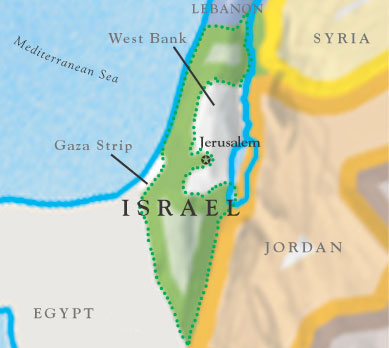Don't give up now, peace sponsors tell Israel, Palestinians
 Tel Aviv - Israel and the Palestinian Authority renewed peace talks on December 12, 2007. One year on, the main sponsors of the peace process are desperately trying to save what they can from the negotiations.
Tel Aviv - Israel and the Palestinian Authority renewed peace talks on December 12, 2007. One year on, the main sponsors of the peace process are desperately trying to save what they can from the negotiations.
The so-called Quartet of peace makers - the United States, Russia, the European Union and the United Nations - said in a statement Monday night that the process was "irreversible" and should in fact be intensified.
Russia and the US have even gone so far as to co-sponsor a United Nations Security Council resolution which would give a public statement of support for the peace talks, and ensure that they will continue.
But despite the statements of support, the Annapolis process - as the Israeli-Palestinian talks are called, after the US Naval Academy where they were re-launched - hangs by a thread.
While US Secretary of State Condoleezza Rice, the foreign diplomat most associated with the process, said Monday night that the sides have made a great deal of progress and were much closer to an agreement than they were in 2001, or even 2007, it is still far from certain the sides will be able to conclude a peace treaty.
And equally uncertain is how high solving the Israeli-Palestinian imbroglio will feature on the agenda of incoming US President Barack Obama and his secretary of state, Hillary Clinton.
In addition to the disagreements which still persist between the sides regarding the final parameters of a deal, both the upcoming Israeli elections and the ongoing political turmoil in the Palestinian territories could see the peace talks change dramatically.
If Israel's current ruling party, Kadima, headed by Foreign Minister Tzipi Livni, wins the February 10 elections, the talks can be expected to proceed much as they have to date.
Livni has headed the Israeli negotiating team in the talks, and both she and her party are enthusiastic supporters of the current peace process.
But polls show Kadima being defeated by the Likud Party, headed by former prime minister Benjamin Netanyahu, a frequent and vocal critic of the Israeli government's stance in the talks.
Netanyahu, for example, is adamant that Israel should not relinquish control of East Jerusalem, which Palestinians want as the capital of their future state.
He is also unlikely to be accommodating on the issue of evacuating Israeli settlements in the occupied West Bank.
And even if Netanyahu did want to continue with the Annapolis process, he may be unable to do so, given that the Likud's list of candidates in the election includes many who are opposed to any but the most miniscule of compromises with the Palestinians.
On the Palestinian side, things are equally unclear. President Mahmoud Abbas may call parliamentary and presidential elections by the middle of 2009.
There is a real possibility that both will be won by the radical Islamic Hamas movement which refuses to recognise Israel's right to exist, and with whom Israel refuses to negotiate.
Such a scenario will mean the end of the peace process in its current form, perhaps in any form.
Hence the Quartet statement, reaffirming the "irreversibility" of the peace process, and the Security Council resolution, is not just a statement of support, but an attempt to tell the parties that they are too far gone along the road to peace to be allowed to give up now. (dpa)